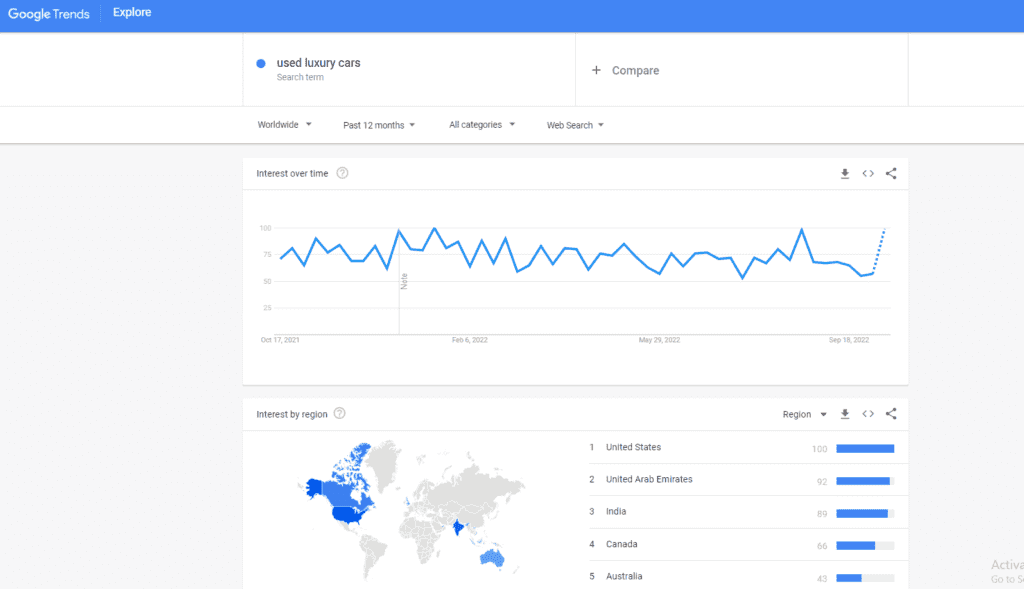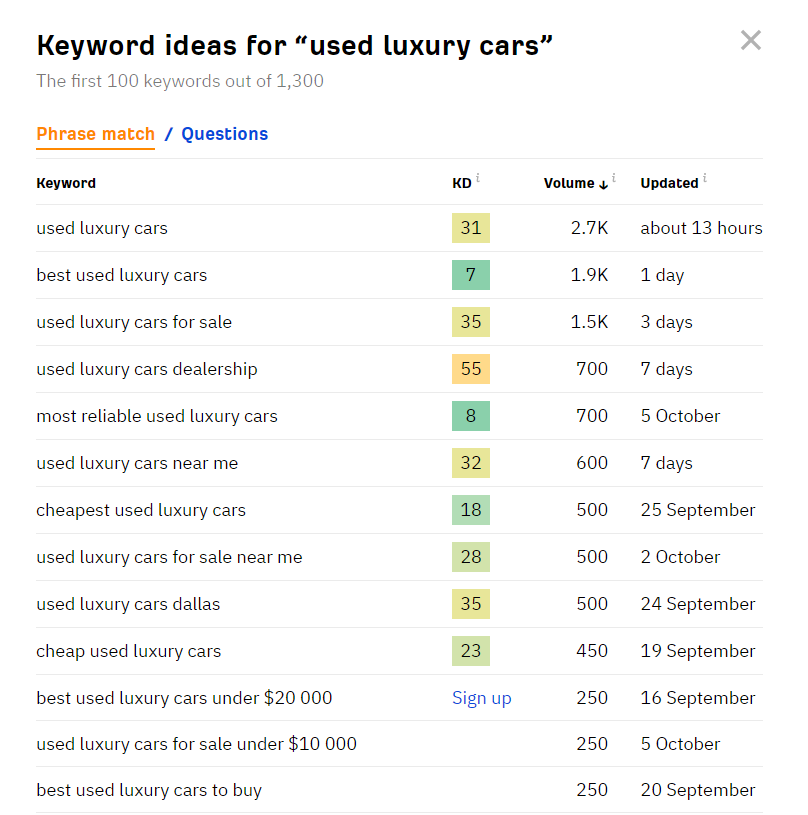
Keywords are focus words that people use to search on Google. With over 7 billion searches every day, you need to be smart about how you choose yours. The right ones are relevant to your website content and have high search potential. Effective keywords also understand search intent and can successfully answer questions.
Is your website struggling to rank for the SEO keywords you want? In this blog post, we'll discuss how you can fix that and choose the right keywords for your business.
Keywords make or break your SEO success. If you've handled everything well, Google will reward you with a high SERP ranking for the keywords that best describe your business. If not, you might have a hard time seeing any website traffic at all. After all, the first result on Google gets around 32% of clicks. And the first five results account for almost 70% of all clicks.
That's why you need to target the right keywords and successfully rank for them. It's useless if you identify the proper keywords, but Google doesn't think your content is relevant enough to display in search results. The inverse can also be as problematic. You might get featured on SERPs, but if it's for the wrong keywords, you won't see any conversion.
So how do you choose the right keywords and rank for them? Consider these pointers.
First, think about your specific niche and industry. Your topics are usually what you blog about the most. Or they could be about what you offer to your target audience. Try to list as many as you can.
For instance, if you're a used luxury car dealership, the topics that apply to your business might include the following:
And so on...
Next, write down topic buckets. These are keywords that relate to your topics. Using the above example, some great focus words about those topics would be:
The main thing to remember is to be as detailed and specific as possible. Put yourself in your target market's shoes and think about what they need.
Once you have your list of keywords, conduct keyword research. This will help you see whether your keywords have high search potential. In short, you'll know whether people are using those terms when they Google.
There are free keyword research tools that you can use. One is Google Trends, which shows you the frequency of specific search terms over time. Using Google Trends, you can also see in which regions people use those keywords and search related topics or queries. Look at this example for the keyword "used luxury cars."

You can also use Ahref's free keyword generator. It will help you find keyword ideas for topics and their search volume. For example:

After determining which keywords are most searched, write long-tail keywords for them. Long tail keywords are search terms that use combinations of serval words and the main keyword. And they're useful because:
Take "used luxury cars", for instance. While it has a good search volume, it's not as useful to a searcher as "used luxury cars near me" or "used luxury cars [in your location]". If you don't create content that caters to these other combos, you might lose out on potential traffic.

User intent refers to the purpose for why a user will look up something on Google. And it can be more nuanced than just wanting to find information. Speaking of user intent, create content for specific keywords that will truly serve your audience and match their search intent.
For example, a user who searches for "how to choose a used luxury car" is someone who is ready (or seriously want) to buy a used luxury car. So, content that targets this search term should not just provide step-by-step instructions on shopping for such a car. It should also persuade that user to buy that car from your website.
Incorporate your keywords into the proper places in your content. These include your:
Finally, do not sacrifice readability. Use your keywords naturally and only where they are necessary. Remember: aim towards people, not search engine bots.
Do you need help conducting keyword research and improving your SEO ranking? iVersion provides a comprehensive suite of SEO services for businesses in and around Sydney. Talk to our team today to get started.
Get the Right People to Manage your IT
Sign Up and Stay Informed